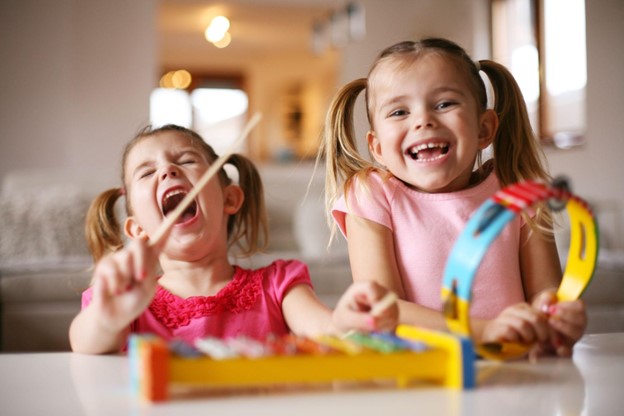

THE POWER OF FREE PLAY

Play is an essential aspect of childhood, and its significance cannot be overstated. In daycare settings, allowing children to choose their activities and games plays a vital role in nurturing children's physical, cognitive, social, and emotional development. Take a look at the importance of free play in daycares and how children learn and thrive through this natural and enjoyable activity:
Fostering Creativity and Imagination
One of the primary benefits of free play in daycares is its ability to stimulate children's creativity and imagination. During free play, children have the opportunity to create their own scenarios, stories, and worlds. Whether they're building with blocks, dressing up in costumes, or engaging in make-believe games, they are constantly using their imaginations to explore new ideas and concepts.
Developing Social Skills
Free play also serves as a valuable social learning experience. Children interact with their peers, negotiate roles and rules, and learn how to collaborate and communicate effectively. They practice empathy, sharing, and problem-solving, all of which are crucial social skills that will serve them well throughout life.
Enhancing Physical Development
Physical activity is an integral part of free play. Whether children are running, jumping, climbing, or engaging in fine motor activities like drawing or threading beads, they are developing their gross and fine motor skills. This physical development is essential for their overall growth and coordination.
Building Cognitive Skills
Play is not just about fun; it's also a cognitive workout for young minds. Through free play, children explore cause and effect, develop spatial awareness, and experiment with different materials and objects. They practice critical thinking and problem-solving as they build structures, solve puzzles, and create patterns.
Encouraging Independence
Free play allows children to make choices and decisions independently. They learn to manage their time, set goals for their play activities, and take ownership of their playtime. This sense of autonomy boosts their confidence and self-esteem.
Managing Emotions
During free play, children may encounter various emotions, from excitement and joy to frustration and disappointment. These experiences provide opportunities for them to learn how to express and manage their feelings in a safe and supportive environment. Daycare providers can help guide children in understanding and coping with their emotions, promoting emotional intelligence.
Promoting a Love for Learning
Perhaps the most important aspect of free play is that it fosters a love for learning. When children engage in play that interests them, they become naturally curious and motivated to explore further. This intrinsic motivation is a powerful driver of lifelong learning.
In daycare settings, free play is not just idle time; it is an essential component of early childhood education. By allowing children to engage in unstructured play, we give them the freedom to learn, grow, and develop in ways that are meaningful and enjoyable. At Pop-Ins Schoolhouse, we recognize the importance of free play to provide an environment where children can thrive, building a strong foundation for their future educational and personal success. So, let's celebrate the power of play and the incredible learning opportunities it offers to our youngest learners.
© 2024 Pop-Ins - All Rights Reserved
Site by
